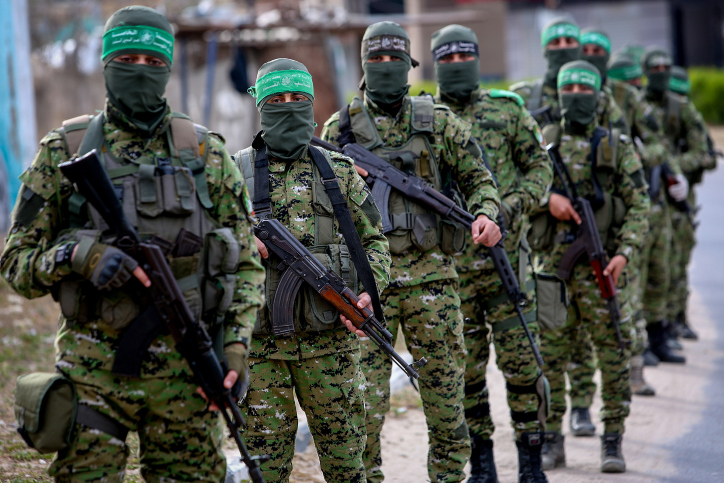The decision by the Palestinian Authority to cut all ties with Israel means it will no longer coordinate thousands of tons of aid to Gaza every week.
By Paul Shindman, World Israel News
The Palestinian decision to sever its security coordination with Israel will produce a problem on the Gaza border and may end up involving Hamas, Kan News reported Sunday.
Even though the Hamas terror organization controls the Gaza Strip, the Palestinian Authority handles the weekly transfer of tens of thousands of tons of humanitarian aid to Gaza via the border crossings, as well as the flow of Gazans into Israel via the Erez and Kerem Shalom border crossings.
The PA still remains the address despite losing control of the Gaza Strip following a 2006 Hamas military coup. Since Israel does not speak directly to Hamas, the PA has become the indirect mechanism between the two, Kan‘s Palestinian Affairs reporter Gal Berger wrote.
It is unclear what effect the PA’s decision will have on the flow of goods and people into Gaza during the three-day Eid al-Fitr holiday this weekend that marks the end of Ramadan. It is not known who will coordinate the goods to and from Gaza when the crossings reopen after the holiday on Tuesday or Wednesday.
Berger suggested the UN, international aid agencies that operate in Gaza, or a “neutral” Palestinian party might be willing to take on the task.
“This decision about stopping the Gaza coordination was not made by Mahmoud Abbas by mistake or distraction,” Berger said. “He and his people know very well about these exact points to make it more difficult for Israel.”
Berger pointed out that if no solution is found to coordinate movement in and out of the Gaza Strip, Hamas in its role as the ruler of the Gaza population will be dragged into the current crisis between Israel and the PA and may begin to exert its own means of pressure on Israel.
“Hamas’ pressure from Gaza on Israel can also translate into rockets very quickly,” Berger said.
Israeli security sources estimated that security and civilian coordination between Israel and the PA will be compromised, but there won’t be a complete disconnect. However, in the Palestinian sector there was satisfaction with the move, and in the Palestinian city of Qalqiliya masked men were seen shooting in the air to support the cessation of security coordination.
The cessation of security ties also included the decisions made in Ramallah to cancel the “hotline” used in emergencies for exchange of information between Israeli and Palestinian officers. The line had remained active even as the PA reduced security in past crises.
Senior Palestinian official Saeb Erekat said last week the PA is not interested in anarchy and violence and will not allow harm to public order and the rule of law in its territory. Erekat said that although the entire security coordination system between Israel and the PA closed, there would be no impact on daily humanitarian aspects, and the PA will continue to provide services to its people.
However, the PA has announced it will not allow Palestinians to enter Israel seeking medical help.
In an earlier report on Channel 11 News, some Palestinian officials criticized the move to cease security coordination, saying it was an inappropriate and a hasty decision.
“Without coordination with Israel, we will not be able to get a needle into the territories, we will not even have milk,” a senior official told Channel 11.


